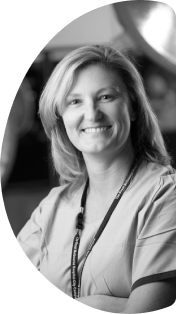Pioneering world-leading research to combat the global burden of brain disease
Brain disease is the leading cause of disability and the second leading cause of death worldwide.
Thanks to the pioneering efforts and expertise of hundreds of researchers and clinical teams, our discoveries and breakthroughs can change this, for good.
The Foundation
Since our establishment in 1992, supporting research to solve some of the world’s most insidious brain and neurological diseases has remained at the forefront of our work.
Regarded as a leading and sought-after centre of neuroscience excellence, we attract and bring together some of the world’s most esteemed and upcoming neurologists, neurosurgeons and neuroscientists to tackle brain disease.
Situated at The Royal Melbourne Hospital in the Melbourne Biomedical Precinct – a world-class medical research hub – our research teams collaborate with renowned local and international institutes, encouraging practical, multi-disciplinary teamwork. It is through this powerful blend of leading minds that we can boost our rate of scientific discovery and application.
From lab to patients, faster
With our research focused on ‘translational’ or ‘lab-to-patient’ methodologies, where we rapidly apply our findings in the lab to the real world, we can fast-track our discoveries and breakthroughs to patients in need.
And, with over $80 million raised to date, we have already funded and produced meaningful results that directly benefit brain health and patient outcomes.
But more research – and funding – is needed.
Research areas
Comprising teams of leading neurologists, neurosurgeons, neuroradiologists, research nurses, statisticians and laboratory, clinical and imaging researchers, The Royal Melbourne Hospital’s Departments of Neurosurgery and Neurology are some of the most progressive in the country.
Led by Professors Kate Drummond AM and Bruce Campbell, respectively, the departments undertake active laboratory and specialised clinical programs to pioneer world-leading research to prevent, detect and treat brain, spinal and neuromuscular diseases.
Department of Neurosurgery
SURGERY OF THE BRAIN, SPINE AND NERVES
Recognised as a leader in its field, the department works in conjunction with the Department of Neurology conducting research and clinical trials relating to:
|
|
Notable initiatives and achievements include:
- Running the world's largest quality-of-life study on brain tumours
- Increasing patient safety during surgery with an intraoperative MRI scanner
- Joining the International Collaboration on Meningiomas (ICOM) to improve the treatment and quality of life in tumour patients
- Undertaking a language impairment and recovery study following brain tumour surgery
- Developing a ‘liquid biopsy’ using MicroRNA to diagnose brain tumours and monitor treatment
- Celebrating 80 years in 2025
“Our laboratories have made considerable progress in developing potential ‘novel’ targets for biological therapies and we have every expectation it will be possible to develop effective therapies for brain cancer in the future. However, further funding is vital to enable our work to continue.”

Department of Neurology
BRAIN AND NERVE DISEASES
One of the strongest in Australia, the department has international recognition for its work, particularly in stroke, epilepsy and multiple sclerosis. Its active research programs, conducted in conjunction with the Department of Neurosurgery, include:
|
|
Notable initiatives and achievements include:
- Stroke: developing Australia’s first mobile stroke ambulance in partnership with Ambulance Victoria
- Stroke: introducing endovascular clot retrieval and expanding access to thrombolysis to identify patients with salvageable brain tissue after stroke onset
- Parkinson’s disease: developing a deep brain stimulator program
- Epilepsy: developing new anti-epileptic medication
- Epilepsy: Australian Pregnancy Register for women on antiepileptic medications
- Multiple sclerosis: trialling new medication and potential therapies
- Dementia: investigating pharmacological treatment approaches for various types of dementias
“Patients participating in stroke research trials, for example, contribute to world-leading programs in emergency stroke care and secondary prevention. Research led by The Royal Melbourne Hospital team has changed practice in acute stroke therapies globally.”


